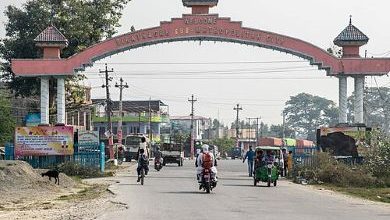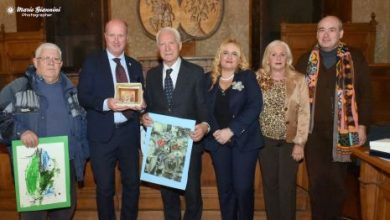Disastrous September – A Novel on 9/11 Terrorist Attacks Part-2

In memory of the 2981 victims of the September 11, 2001 terrorist attacks on the World Trade Center, among them three Albanians: Frrok Camaj, Mon Gjonbalaj and Simon Dedvukaj.
[Disastrous September, by the Albanian-American author, Skifter Këlliçi, takes place on two different days: May 10 and September 11, 2001. The novel tells the story of a well-known CNN reporter named Steve Ferguson, engaged to Jacqueline Cramer, a flight attendant based at Logan International Airport in Boston, Massachusetts. In addition, the novel explores the lives of four Albanians. Besim Istrefi, Rrok Camaj, and Marko Muzaka worked as window washers in the Twin Towers. Sokol Kama, a journalist and writer, works in security at Logan International Airport. On September 11, 2001 just a few days before Steve and Jacqueline’s wedding, two planes, bound for Los Angeles, depart from Boston. Terrorists hijack them and crash them into the Twin Towers in New York. The author, who worked at Logan International Airport during the attacks, offers a gripping account of the tragedy and shows how it could have been avoided.]
By SKIFTER KELLICI
[Translated from the Albanian by Carrie Hooper]
While Steve, Jacqueline, and Besim were talking, many people entered the first tower, among them, an Arab in his thirties named Jaser al-Sadri. He was thin and of average height, with thick, dark hair. He wore jeans and a blue coat. He approached a checkpoint similar to those at an airport, took his keys and some loose change out of his pockets, and put them in a bin, but as he passed through security, an alarm sounded.
“Please pass through again,” said one of the guards.
Jaser walked through a second time, and the alarm sounded again.
“Did you leave anything in your pockets?”
Jaser shrugged his shoulders, checked his pockets, and removed a small knife. He smiled and said, “I forgot about this knife.”
“It’s larger than the maximum size allowed,” said the guard.
“That’s funny,” said Jaser. “When I bought it, it looked just like the one I lost a few days ago. What should I do?”
“Leave it here. We’ll give it back to you on your way out.”
“Thank you,” said Jaser as he left the knife with the guard and went through the security checkpoint again.
Jacqueline couldn’t take her eyes off the cage which hoisted Besim up to the windows he needed to clean.
“May I go up with you?” she asked.
“No,” said Besim. “I’m the only one allowed in here.”
“I can’t come with you either, not even during the interview?” Steve wondered.
Besim was quiet for a moment.
“I’m not sure, but I think we can work something out. My boss said Said, whom you met earlier, might be able to help you. He is a refugee from Algeria who came to America ten years ago. He is a good guy and a hard worker. He started working here five years ago as a regular employee. Then he became a supervisor, and now he is the company manager and a full time student. I think he can work something out.”
Besim glanced at Steve.
“Besides, when Said sees what a lovely couple you and Jacqueline make, he won’t hesitate to let you ride in the cage with me. Am I right, Jacqueline?”
“Absolutely,” said Jacqueline with a smile. “I was hooked the moment I saw Steve’s blue eyes. We met last September at a party at the Logan Airport Hilton in Boston. Steve had come to the airport to make a documentary.”
Jacqueline looked back at Steve.
“Don’t listen to her,” said Steve. “She is exaggerating because she loves me.”
“She’s not exaggerating at all. She made the right decision when she chose you,” said Besim.
“I chose her, too,” said Steve, hugging Jacqueline.
A dark-haired man approached them.
“There’s Marko Muzaka.”
“I’m sorry I’m late,” said Marko, shaking everyone’s hand. “One of the visitors wasn’t feeling well so I had to help him to the elevator. I didn’t have a chance to call you.”
“I would forgive you any day but today when Steve Ferguson, one of the most famous CNN reporters, is visiting us here in New York,” said Besim.
Marko looked at Steve.
 “You’re right, Besim,” he said. “Ever since you showed me the photos of you in The Daily News and the Times, I hoped I, too, would receive that kind of publicity one day. I felt honored when RAI (Italian Radio and Television) made a documentary about the Arberesh in the village of Saint Miter in Corona, Italy where I was born and lived for a short time before my parents emigrated to America. I was very young when they recorded me singing an Arberesh song. The history of the Arberesh really moves me.”
“You’re right, Besim,” he said. “Ever since you showed me the photos of you in The Daily News and the Times, I hoped I, too, would receive that kind of publicity one day. I felt honored when RAI (Italian Radio and Television) made a documentary about the Arberesh in the village of Saint Miter in Corona, Italy where I was born and lived for a short time before my parents emigrated to America. I was very young when they recorded me singing an Arberesh song. The history of the Arberesh really moves me.”
“I heard Arberesh songs are very beautiful,” said Jacqueline.
“Yes. The song I sang as well as every other Albanian and Balkan song is beautiful.”
“Can you sing that song now?” asked Jacqueline.
Steve was surprised by her “selfish” request, especially because they had just met. He wanted to tell her not to impose on Marko, but he stopped when he saw her request didn’t bother him at all. He immediately started singing:
“Beautiful More,
How could I leave you
Never to see you again!
My God is there.
My mother is there.
My brother is there.
They are all buried there.
Beautiful More,
I’m speaking with tears in my eyes.
More, Arberi!”
Marko sang from the bottom of his heart. Even though they couldn’t understand the words, Steve and Jacqueline could feel his nostalgia. Besim, who had heard the song hundreds of times and had taught it to his students, felt for the thousands of Albanians, who longed for their homeland.
“In order to escape the Ottomans, who wanted to enslave the Albanians in their own country, my ancestors emigrated to Morea in Peloponnese, Greece,” said Marko. “When the Turks conquered that area, the Albanians moved to Calabria, Sicily, and other parts of southern Italy where this song, the symbol of the Arberesh, was “born.” After the documentary aired on RAI, I felt like a king. Whenever they saw me, kids would shout, Good job, Marko! You sang that song beautifully! Now Besim and I are going to be on CNN.”
“You are true heroes,” said Steve. “That’s why American journalists have taken an interest in you.”
“I’m not a hero,” said Besim. “I’m sure you remember what happened in this tower on February 23, 1993.”
“Of course. I was in my last year at Columbia University, and I remember a documentary about a group of terrorists, who planted a bomb in the basement. There were a few casualties as well as damage to the building. The terrorists were later arrested.”
“That’s right.” Besim nodded. “I was getting ready to clean the windows. It was around noon, and I felt a slight tremor. The lights in the offices went out, and the alarm sounded. I wondered what was going on. I looked down and saw a cloud of dust and smoke. I could hear people screaming for help. I knew my life was in danger, but I refused to give up. I decided to stay right where I was. Other workers stayed put, too. Later, I found out the elevators weren’t working because the power had gone out. I just stood there and wondered what to do.”
“What happened next?” asked Jacqueline.
“When I realized I was the only one up there, I went down the fire escape. It took four hours to get out. No one would have recognized me, not even my wife and kids. I was tired and scared, and my face was dirty from all the smoke. I never told Marta about the incident. She wouldn’t have let me work there anymore. No, Mr. Ferguson, I’m not a hero. I did what I had to do.”
Steve and Jacqueline were awestruck.
“You had no choice,” said Steve.
“You had to save yourself,” added Jacqueline. “It would have been foolish to stay up there.”
Besim felt somewhat relieved after hearing Jacqueline’s words.
“I agree,” said Marko. “Have you heard what George Willington did in 1977?”
Steve thought for a moment.
“Oh yeah,” he said. “I read about him. I was only five when the incident you’re referring to happened.”
“Besim was 35,” said Marko. “He had come to America the previous year.”
“I’ve never heard of George Willington,” said Jacqueline.
“Of course you haven’t. You weren’t even born yet,” laughed Steve.
“Must you always remind me that you are older than me?” asked Jacqueline, playfully.
“Please, Besim, tell us what you saw,” urged Steve.
“On a beautiful summer morning, around 7, I was getting ready to go to work in the south tower, when I saw a man climbing the North Tower, where Marko has been working for the past two years. He was holding a rope like a mountain climber.”
“And nobody else saw him?” asked Jacqueline.
 “Of course other people saw him,” said Besim. “A few minutes later, the police, the fire department, and an ambulance came to the main entrance of the building. The police kept asking the man to come down slowly, but he wouldn’t listen. They even put an inflatable platform under him, in case he fell. After almost five hours, he reached the top of the tower. He waved at me and said he had made it safe and sound. The police, firefighters, and doctors were already there. The man didn’t appear to be crazy. In fact, he had a college degree.”
“Of course other people saw him,” said Besim. “A few minutes later, the police, the fire department, and an ambulance came to the main entrance of the building. The police kept asking the man to come down slowly, but he wouldn’t listen. They even put an inflatable platform under him, in case he fell. After almost five hours, he reached the top of the tower. He waved at me and said he had made it safe and sound. The police, firefighters, and doctors were already there. The man didn’t appear to be crazy. In fact, he had a college degree.”
“That’s why I’m saying you would have been more stupid than Willington if you had stayed up there when the bomb exploded in the basement of the Towers,” said Marko.
“You know what, a reporter from Boston said the same thing when I told him the story,” said Besim.
“Who?” asked Jacqueline.
“Sokol Kama, an Albanian journalist.”
“Sokol Kama!” Steve exclaimed. “He’s my friend. Jacqueline introduced us at Logan Airport.”
“Really?” asked Besim. “Marko, you remember Sokol, don’t you?”
“Of course. A framed copy of his interview hangs on my wall.”
“Jacqueline, do you work with Sokol?” asked Besim.
“Yes,” she said. “He is a security supervisor in Terminal B. To be honest, he doesn’t belong there. He’s a wonderful journalist and a talented writer. I’ve sent several of his books to schools in Kosovo and Albania. One night at the airport, he told me all about Communist Albania. I’m sure you’ve heard about that, Steve?”
“I hear news about the political situation in Kosovo and Albania every day,” said Steve.”
“Last year, Sokol did a report similar to one by some American journalists here in New York,” said Jacqueline. “I’ll give him a call right now and tell him where we are.”
“He’ll be so surprised,” said Besim with a smile.
(Continues)
Click here for Part-1,
__________________
About the Author
 Skifter Këllici was born in Tirana, Albania and received a diploma in history and literature from the University of Tirana. He worked as a journalist, scholar, and sportscaster on radio and television. He is the author of several novels and nonfiction books, including the children’s books, “Memories of the Old Neighborhood” and “In the Footsteps” as well as the historical novels, “Assassination in Paris”, “The Murderer with the White Hands”, and “September Disaster.” He wrote the screenplay for “In the Footsteps” which won a special prize at the International Children’s Film Festival in Giffoni, Italy in 1979. He has lived in Boston, Massachusetts since 1999.
Skifter Këllici was born in Tirana, Albania and received a diploma in history and literature from the University of Tirana. He worked as a journalist, scholar, and sportscaster on radio and television. He is the author of several novels and nonfiction books, including the children’s books, “Memories of the Old Neighborhood” and “In the Footsteps” as well as the historical novels, “Assassination in Paris”, “The Murderer with the White Hands”, and “September Disaster.” He wrote the screenplay for “In the Footsteps” which won a special prize at the International Children’s Film Festival in Giffoni, Italy in 1979. He has lived in Boston, Massachusetts since 1999.
About the Translator
Carrie Hooper was born and raised in Elmira, New York. She has been blind since birth. She received a B.A. in vocal performance from Mansfield University, Mansfield, Pennsylvania. She went on to receive an M.A. in German and an M.A. in vocal performance from the State University of New York at Buffalo. After completing her studies, she spent a year at the Royal University College of Music in Stockholm, Sweden as a Fulbright scholar. Carrie currently lives in Elmira, New York. She taught German, Italian, and Romanian at Elmira College. She has a passion for foreign languages and in addition to the languages mentioned above, she is also proficient in Swedish, Spanish, and Albanian. Music also plays an important role in Carrie’s life. She teaches voice and piano lessons, gives vocal concerts, plays the piano and organ at a church, and sings in a community chorus. Carrie not only loves music and languages, but also enjoys poetry. She has published three books: “Piktura në fjalë” (“Word Paintings”), a bilingual collection of poetry (Albanian-English), “My Life in My Words”, and “Away from Home.” She has also translated texts from Albanian and Romanian to English.
Read: Escape from Death – A Novel by Zekerija Idrizi




